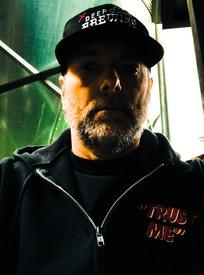Into Word or Sayings Origins?

GuitarJerry
Posts: 6,102 Member
I'd like to hear some that you might have.
There are several theories on "the whole nine yards". It's believed to refer to clothing. However, the saying didnt come about until around WWII, and they think it's because the large machine guns they used, the long belt with the shells on it was 9 yards long.
What interesting tidbits do you have to share?
There are several theories on "the whole nine yards". It's believed to refer to clothing. However, the saying didnt come about until around WWII, and they think it's because the large machine guns they used, the long belt with the shells on it was 9 yards long.
What interesting tidbits do you have to share?
0
Replies
-
I have a buddy that loves stuff like this. He'll talk about it at length while hanging out. Especially things related to Middle English.0
-
"Meeting a deadline" sounds innocent but has a sinister origin, so it stuck with me.
If I remember correctly it was coined from Civil War times. The "deadline" marked the boundaries of the prison camps, so any captive soldier attempting to cross the deadline was shot.0 -
mind your p's and q's
barkeeps would keep track of the patron's alcohol consumption in pints and quarts in British pubs.
I've also heard other variations, but this is the one I prefer.0 -
mind your p's and q's
barkeeps would keep track of the patron's alcohol consumption in pints and quarts in British pubs.
I've also heard other variations, but this is the one I prefer.
I thought that was about saying Please and Than-Q?0 -
In for etymology.0
-
Here are a few:
getting "The rough end of the pineapple"
"The wheels fell off" describing when things went badly wrong
"Not the sharpest knife in the draw" or "The brighest crayon in the box"
"Dropped his ticket" when the pup had an accident
"Checking out the letterbox" when a dog sniffs another's butt0 -
Bridal started out as a noun.
It comes from the Old English brydealo, which literally translates as "bride ale". In OE, ale could refer to festivities where a lot of ale was drunk, so brydealo meant a wedding feast. You see the spelling bridal referring to a wedding party in the mid 1400's, but starting around the early 1600's it's mostly used as an adjective, probably because it (like many adjectives) ends with -al.
Long story short, if you want to be true to the origins of the word, anything you call bridal should involve a lot of alcohol.0 -
I've heard that and one other, but I prefer the alcoholic one.mind your p's and q's
barkeeps would keep track of the patron's alcohol consumption in pints and quarts in British pubs.
I've also heard other variations, but this is the one I prefer.
I thought that was about saying Please and Than-Q?0 -
"Balls to the wall."
Generally considered to be somewhat vulgar, but the term actually has its origins in aviation. Traditionally, airplane throttles were tipped with balls you gripped to advance or retard the throttle levers. Also, the cockpit of an airplane was built with a "firewall", commonly called just the "wall", specially designed to protect the pilot from an engine fire. It's located where the dashboard in a car would be.
Setting the throttles to maximum power is to advance them to the firewall. In other words, you go "balls to the wall".0 -
my brother is really into etymology. he's a bit of a philosopher and definite linguist in his own right. i was scrolling through his facebook to try to find something cool he'd posted, but couldn't come across anything. he could wax poetic about word/phrase etymology for days.
and, incidentally, the phrase "wax poetic" was actually not derived from the waxing of the moon (to visibly grow), and was around long before it was used to describe the growth of the moon. It's centuries old, and is derived from the Old English "weaxen".
An interesting, but brief, explanation of the phrase's etymology is offered here: http://tiny.cc/9vf7zw0 -
This content has been removed.
This discussion has been closed.
Categories
- All Categories
- 1.4M Health, Wellness and Goals
- 398.2K Introduce Yourself
- 44.7K Getting Started
- 261K Health and Weight Loss
- 176.4K Food and Nutrition
- 47.7K Recipes
- 233K Fitness and Exercise
- 462 Sleep, Mindfulness and Overall Wellness
- 6.5K Goal: Maintaining Weight
- 8.7K Goal: Gaining Weight and Body Building
- 153.5K Motivation and Support
- 8.4K Challenges
- 1.4K Debate Club
- 96.5K Chit-Chat
- 2.6K Fun and Games
- 4.7K MyFitnessPal Information
- 17 News and Announcements
- 21 MyFitnessPal Academy
- 1.5K Feature Suggestions and Ideas
- 3.2K MyFitnessPal Tech Support Questions







